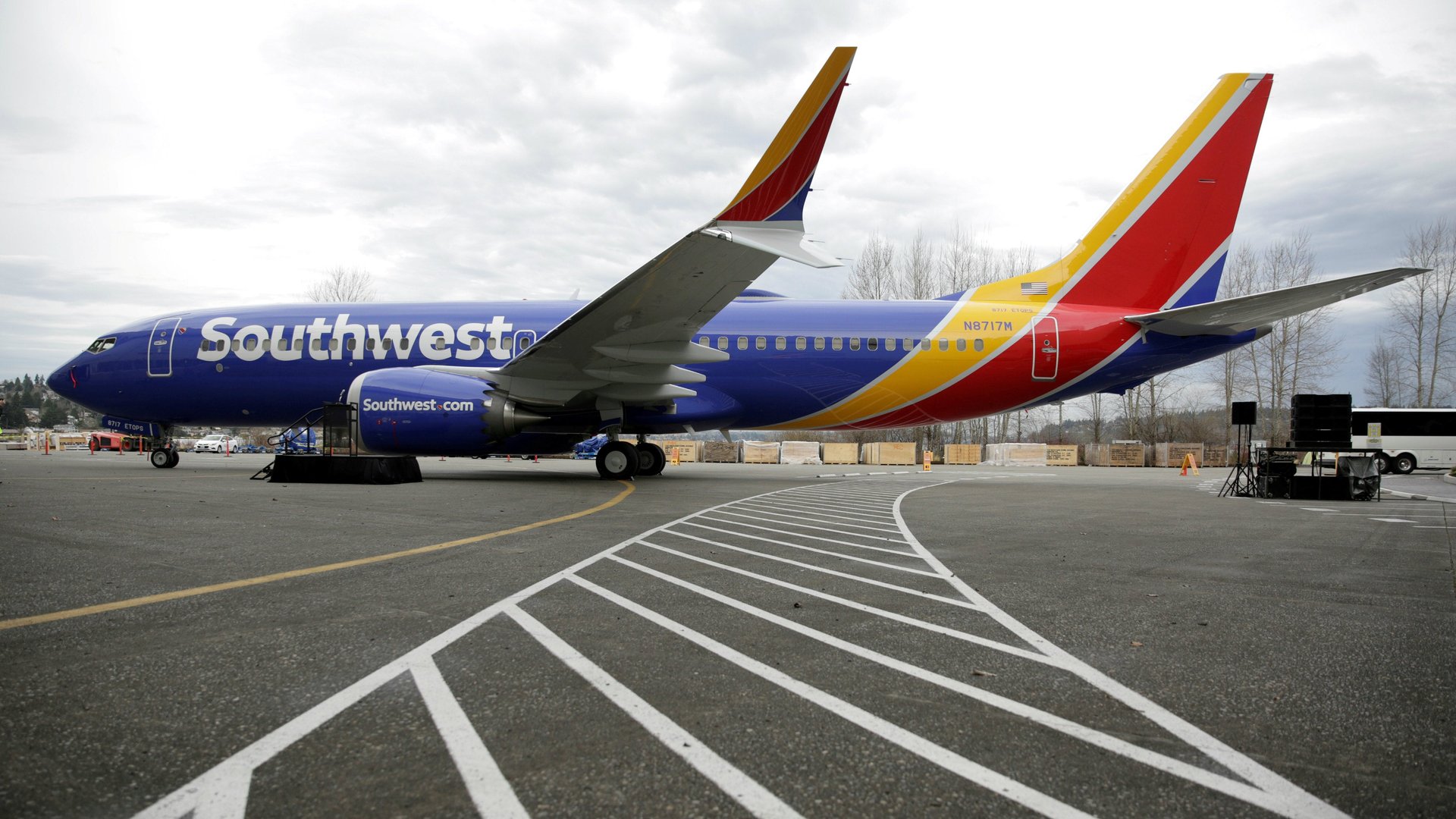Southwest’s quirky boarding process is making it a killing
Since 2012, American carriers have consistently rolled out “basic” economy products—removing amenities that used to be a given and charging for them, to squeeze more revenue out of passengers. And yet, amidst the industry’s great unbundling, the US budget airline Southwest still doesn’t charge for checked bags, and even grants passengers some flexibility when it comes to changing or canceling flights.


Since 2012, American carriers have consistently rolled out “basic” economy products—removing amenities that used to be a given and charging for them, to squeeze more revenue out of passengers. And yet, amidst the industry’s great unbundling, the US budget airline Southwest still doesn’t charge for checked bags, and even grants passengers some flexibility when it comes to changing or canceling flights.
“You’re not going to see basic economy from Southwest,” CEO Gary Kelly promised on an earnings call in January. “That’s not what we do. And I already said, we’re not going to charge for bag fees.”
Where Southwest does rake in the fees, however, is with its famously unusual boarding policy. The airline doesn’t assign seat numbers; instead, it assigns passengers a boarding group and position. Passengers with privileged boarding positions then scramble for the best seats. Naturally, there are many willing to pay for the opportunity to be higher up in line, through Southwest’s add-on products like EarlyBird check-in or Upgraded Boarding.
And pay they do. According to Department of Transportation figures first reported by USA Today, Southwest earned $642 million in ancillary passenger fees in 2018, which includes these boarding revenues as well as other extras such as in-flight internet, alcoholic drinks, and bringing pets on board. While the 2018 data did not include an itemized breakdown, the year before, two thirds (63%) of ancillary revenue came from those early boarding fees, and the airline reported double-digit year-on-year growth on its boarding products last month.
Still, even with its unorthodox boarding process, Southwest isn’t earning quite as much as other airlines do in fees. As Bloomberg put it, Southwest “barely has a toe in the big pool of money” that other airlines collect from add-ons—everything from baggage to a beverage. American Airlines, for example, earned $911 million in baggage fees alone in the first nine months of 2018.
But crucially, Southwest is also a brand that has created a loyal following on the basis of not squeezing its passengers at every single opportunity. That both costs and counts for a lot. That’s perhaps why Southwest consistently has higher customer satisfaction scores than its American competitors, according to the American Consumer Satisfaction Index
Though Kelly said revenue enhancements—otherwise known as way to make more cash beyond a ticket sale—are “under construction,” analysts don’t expect Southwest to do anything that will upset that reputation.